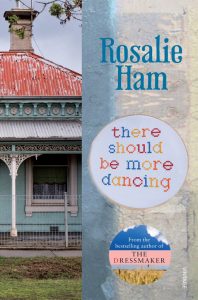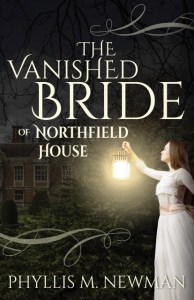Rosalie Ham is an Australian author most famous for her debut novel The Dressmaker, a black satire about love, payback, and 1950s haute couture, which was made into a major motion picture starring Kate Winslet, Judy Davis, Liam Hemsworth, and Hugo Weaving in 2015.
Recently I was fortunate enough to meet Rosalie at an event where she explained how the movie was made, her part in it, and the challenges of shifting a story from prose to film. Rosalie was so inspiring that, grabbing my courage in both hands and telling myself that being scared every now and then is good for me, I introduced myself and asked if she would consider appearing on the Last Word of the Week blog. And here she is!

Thank you for joining me today, Rosalie. Can you tell us something about yourself that you think anyone who reads your book/s really ought to know?
Rosalie: I tend towards the ironic, and so some readers don’t ‘get’ that sort of tone or my black humour, but I get that not every book is for every reader.
That’s a great way to think about it, very wise. What is your favourite scene from your own writing? Why?
I have favourite scenes in all four novels, so I’ll pick a couple. In The Dressmaker it’s at the end when Sergeant Farrat is sitting on top of The Hill. Everything around him is razed, the landscape burned flat to the ground, smouldering and smoking, cinders floating. The District Inspector of Police arrives and asks, ‘What happened?’
The sergeant replies, ‘There’s been a fire.’

At the beginning of Summer at Mount Hope Phoeba, Lilith and Maude are sitting on the narrow bench of the family sulky which is stranded in the middle of a roadside dam. The three 19thcentury ladies are wearing their Sunday best, sheltering from the sun under their vast, ostrich plumed hats. Their skirts are bunched on their laps exposing the lacy trim on their bloomers, their boots are up on the dash, slimy green water swirls just below their bottoms and the tail of the horse supposedly conveying them to Church floats before them. In the quiet of the country lane, they hear a carriage approach. It is the grand Britzka containing the wealthy neighbours from the vast property to the west. Maude speculates, ‘They may not notice us.’
Oooh, yes, these are perfect. From what I have read, I understand that your characters are not completely imaginary, but based on real people. Has anyone recognised themselves in your books?
I suspect most writers create characters using elements of real people. Because characters, basically, carry a theme, creating a plausible vehicle is my main focus. The added personality traits are instilled to make them more memorable and hopefully readers might then find empathy with a character and his or her purpose. Some readers out there might just recognise why a character says and does certain things.
I know that you appeared in the film version of The Dressmaker as an extra. Are you a character in any of your books? Why/why not?
No, I’m not a character in any of my books. Generally, in order to create an effective character for a particular role that character needs to do what you want them to do. Their intention is their narrative drive, if you like, so their intention has to be quite separate to what I might say and do. It’s essential to strive to present a balanced argument, so you need to think about alternate arguments and create characters to present them so they all need to be other than the writer’s personal point of view. The story becomes about the argument rather than how I feel about the point I’m prosecuting.

That makes sense. Take yourself back ten years – what would that Rosalie like to tell you?
Trust your ability. Believe in yourself more, go for it, your stories will reach further than you imagine.
Amazing, yes. What’s next for you in the world of writing?
More writing. I’ve got a few more events to attend this year to promote my last novel, The Year of the Farmer, then there’s a rough first draft of my fifth book that I’m dying to get stuck into. As I see it, there are at least two more novels I could write. And I have a dream that one day I’ll adapt one of my novels to a stage play. And I need to do all of this while teaching part time.
 What’s the single most important quality in a writer, in your opinion?
What’s the single most important quality in a writer, in your opinion?
Talent. Some books are written through sheer determination and they’re good. Readers will get much from them, but some writers are different, their stories boil straight from the heart, they burn and shimmer, they’re well-structured and moving, revelatory, unique, life-changing, and above all, memorable. That sort of writing can’t be taught, it comes from the way writers look at the world and convey it to others.
And finally:Who would you be if you were a fictional character – one of yours, or someone else’s?
I’d be Phoeba Crupp from my second novel, Summer at Mount Hope. I’d grow my own grapes and produce fine wine, raise beautiful sheep with superior wool, cultivate exceptional grain crops and work hard with nature. Because I value friendship above romance, I’d carry sad matters of the heart in my back pocket like a spare hanky. When my father betrays me, I’ll turn that to my advantage and make my life a testament to female strength and the fighting rural spirit.
She sounds divine. Great choice.
Thank you so much for sharing with me today, Rosalie. I was indeed a pleasure and an inspiration to meet you.
Rosalie’s Links:
Website: https://rosalieham.com/
Twitter: @RosalieEHam
Facebook: https://www.facebook.com/RosalieHam/
If you’d like to book Rosalie to talk at your school, library or book club (or fundraiser, lunch, valedictory…) please get in touch with Booked Out Speakers, Melbourne on (03) 9824 0177. I can highly recommend her as a speaker!
Rosalie is represented by Jenny Darling and Associates (03) 9696 7750
























